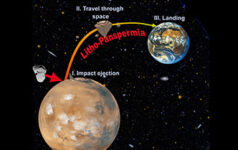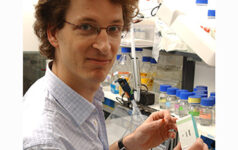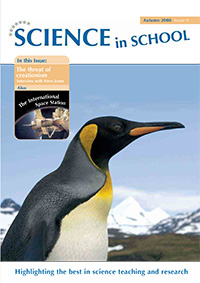Is there anybody out there? An ark of life
An enormous meteorite impact and then a rocky flight from Mars. Is that how life appeared on Earth? Cornelia Meyer takes us on a space trip through the lithopanspermia theory and describes how she is putting it to the test with the help of student colleagues.






























